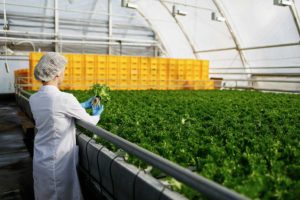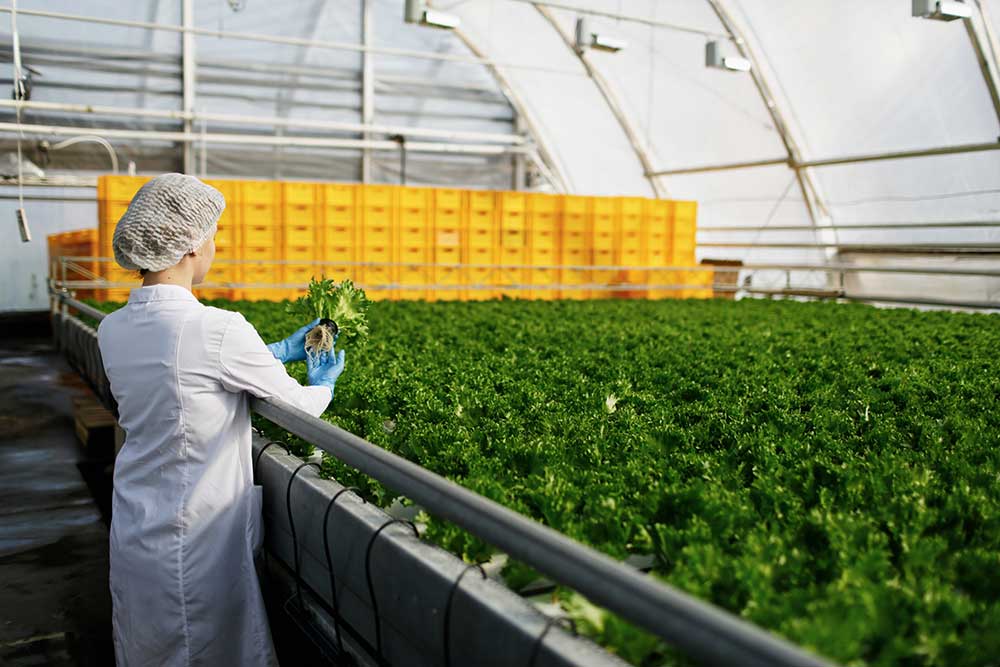Disclaimer: The information on our website is provided for general information purposes only. We make no representations or warranties of any kind, express or implied, about the completeness, accuracy, reliability, suitability or availability with respect to the website or the information contained on our website for any purpose. Any reliance on such information is therefore strictly at your own risk and we are not liable for any damages or losses arising out of or resulting from your reliance on any information contained on our website.
An agricultural technician assists in agriculture and food science to ensure food quality and agricultural products. They can perform a wide range of duties depending on the specific field they choose to make their specialization. These duties can vary from working in a laboratory performing and recording tests, to performing more agricultural duties. Watch a video to learn what an agricultural technician does.
How to Become an Agricultural Technician

An agricultural technician usually starts their educational path with an associate’s degree in a life science such as biology, chemistry, animal science or crop science. A high schooler planning to go into this field will want to focus on taking a heavy course load of math and science classes. From there some jobs will require a bachelor’s degree in biology, chemistry, animal science, crop science, or agricultural engineering. You will also gain on-the-job training to ensure that federal regulations are met. These trainings may depend on the specific area of work and cover subject matter such as sanitation, hygiene, and production procedures.
Some school programs also provide internships or cooperative programs to improve employment opportunities. There are also technician jobs that allow a high school diploma, however these positions may require one year of on-the-job training.
Free Agriculture Online Course
Wageningen University and Research offers a free Sustainable Food Security: The Value of Systems Thinking course on EdX.org. However, there is also an option to pay a small fee receive a verified certificate upon completion of the course. By taking this course, you’ll learn:
- The concept of environmental sustainability and identify the main issues associated with food production.
- The basics of systems thinking and understand how the different aspects of a system influence one another and how a system itself is affected by its context.
- The relevance of crop and livestock productivity for environmental sustainability.
- The environmental indicators and how to measure the environmental impact of food production at farm, village or regional level
- Decision-making and life cycle assessment.
- Helpful tools and their strong and weak points.
Job Description of an Agricultural Technician
An agricultural technician assists scientists in agriculture and food science to test food quality and agricultural products. There are several specific fields to go into, so the duties will vary depending on the area of the job’s specialization. The Bureau of Labor Statistics says that these areas can include, “animal health, farm machinery, fertilizers, agricultural chemicals, or processing technology.” They prepare and perform various tests on crop or animal samples to test for signs of disease or other issues and then write out reports.
Agricultural Technicians who work with plants and planting processes perform tests on seeds to evaluate seed viability. They collect and germinate seeds, maintain plant cuttings, and control environmental conditions. Agricultural Technicians transplant trees, vegetables, or other plants. They determine the rate that a plant germinates from seed planted in certain areas.
These technicians can find themselves performing a range of duties, from maintaining and operating farm machinery to helping in the harvesting of crops. They could also oversee pest and weed control by choosing the best chemicals, determining the methods and schedule of the application of these chemicals. This job is performed in a variety of locations such as a farm, processing plant, laboratory, or an office. An agricultural technician job is best fitted for a person that is detail-oriented and analytical with their thought process. This job also requires a professional to be dependable and ethical.

